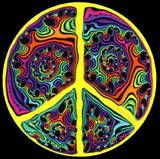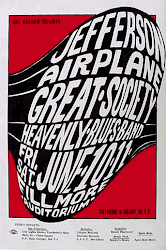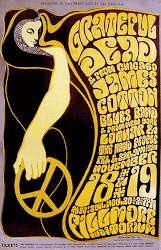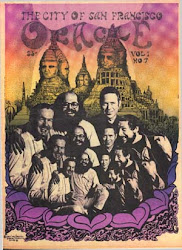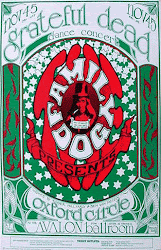Monday, February 25, 2013
Tuesday, August 18, 2009
14 Year-Old Boy Interviews John Lennon (1969)



Psychedelic 60s
The Psychedelic 60s (below):
Featuring: The Byrds, The Grateful Dead, The Beatles, Country Joe & the Fish, Jefferson Airplane, Pink Floyd, Ravi Shankar, Ken Kesey, The Merry Pranksters.
Saturday, August 15, 2009
The Diggers


The Diggers were one of the legendary groups in San Francisco Francisco's Haight-Ashbury, one of the world-wide epicenters of the Sixties Counterculture which fundamentally changed American and world culture. Shrouded in a mystique of anonymity, the Diggers took their name from the original English Diggers (1649-50) who had promulgated a vision of society free from private property, and all forms of buying and selling. The San Francisco Diggers evolved out of two Radical traditions that thrived in the SF Bay Area in the mid-1960s: the bohemian/underground art/theater scene, and the New Left/civil rights/peace movement.
The Diggers combined street theater, anarcho-direct action, and art happenings in their social agenda of creating a Free City. Their most famous activities revolved around distributing Free Food every day in the Park, and distributing "surplus energy" at a series of Free Stores (where everything was free for the taking.) The Diggers coined various slogans that worked their way into the counterculture and even into the larger society — "Do your own thing" and "Today is the first day of the rest of your life" being the most recognizable. The Diggers, at the nexus of the emerging underground, were the progenitors of many new (or newly discovered) ideas such as baking whole wheat bread (made famous through the popular Free Digger Bread that was baked in one- and two-pound coffee cans at the Free Bakery); the first Free Medical Clinic, which inspired the founding of the Haight-Ashbury Free Medical Clinic; tye-dyed clothing; and, communal celebrations of natural planetary events, such as the Solstices and Equinoxes.
First and foremost, the Diggers were actors (in Trip Without A Ticket, the term "life actors" was used.) Their stage was the streets and parks of the Haight-Ashbury, and later the whole city of San Francisco. The Diggers had evolved out of the radicalizing maelstrom that was the San Francisco Mime Troupe which R.G. Davis, the actor, writer, director and founder of the Troupe had created over the previous decade. The Diggers represented a natural evolution in the course of the Troupe's history, as they had first moved from an indoor milieu into the parks of the City, giving Free performances on stages thrown up the day of the show. The Digger energy took the action off the constructed platform and jumped right into the most happening stage yet — the streets of the Haight where a new youth culture was recreating itself, at least temporarily, out of the glaring eye of news reporters. The Diggers, as actors, created a series of street events that marked the evolution of the hippie phenomenon from a homegrown face-to-face community to the mass-media circus that splashed its face across the world's front pages and TV screens: the Death of Money Parade, Intersection Game, Invisible Circus, Death of Hippie/Birth of Free.
The Diggers broadcast these events, as well as their editorial comments of the day, pronouncements to the larger Hip Community, manifestos and miscellaneous communications, through broadsides and leaflets distributed by hand on Haight Street. These Web pages are my attempt to present the story of the digger movement as it developed in the mid-to-late sixties and early seventies (and evolved in various directions even to the present). I have been collecting this Archive for thirty years, and see the Web as a way to display the materials and make them available both for researchers and for all diggers past and present who want to preserve and participate in this history.Link to excellent documentary on The Diggers (Les Diggers de San Francisco):
http://www.megaupload.com/?d=OZE72UDI


Saturday, August 8, 2009
Timothy Leary


In 1968, Richard Nixon called Leary "the most dangerous man in America." Ya think?
 Timothy Leary said:
Timothy Leary said: "Think for yourself and question authority"
"The universe is an intelligence test"
“There are three side effects of acid: enhanced long-term memory, decreased short-term memory, and I forget the third”Turn On, Tune In, Drop Out - sample from the original 1966 LP (top left)
Friday, August 7, 2009
The Sixties: The Years That Shaped a Generation - 1969

1969: The Rage
Student activism continued through the end of the 60s - this time with the fight centered on identity. At San Francisco State University, students held a 134-day strike in an effort to draw attention to the university's diverse population and the need for ethnic studies departments. In the end, their struggle led to the creation of a black studies department, but at a cost of 700 arrested.
The counter-culture reached its high point with Woodstock, the largest and last rock festival of its kind. But the heavy experimentation of the decade would take its toll, leaving many feeling on the edge of despair and others fleeing to the respite of country life.
With the end of Nixon's first year in office, the American death toll in Vietnam continued to mount. Protests took place in every city around the country, calling for the immediate withdrawal of troops from Vietnam. With over two million present, this became the largest one-day demonstration ever in a Western democracy. Nixon would be forced to rethink his plan for escalating the conflict.
The country was fractured beyond repair. In frustration, some activists turned to more radical methods to make their statements. Vietnam veterans returned from war shattered and disillusioned, with some returning their medals and calling on the Supreme Court to declare the war "unconstitutional."
Barry Melton, guitarist for Country Joe & The Fish, says at the end of THE SIXTIES, "It's important for the youth of a generation to feel that they can change the world because they really can ... that was a time of tremendous change, where youth were tremendously motivated. It would be good to see that happen again."
Thursday, August 6, 2009
Night Flight 60's Hippie Movie Trailer
Wednesday, August 5, 2009
San Francisco - Scott McKenzie (1967)

 Scott McKenzie (b. 10 January 1939, Jacksonville, Florida) is a singer best known for his 1967 hit of "San Francisco (Be Sure To Wear Flowers In Your Hair)." San Francisco was featured in the highly acclaimed movie Forrest Gump. He grew up in North Carolina and Virginia, where he became friends with the son of one of his mother's friends, John Phillips. In the mid 1950s, he sang briefly with Tim Rose in a high school group called The Singing Strings, and later with Phillips, Mike Boran and Bill Cleary formed a doo wop band, The Abstracts. He (Scott) was a crooner in an era which lacked crooners under the age of fifty.
Scott McKenzie (b. 10 January 1939, Jacksonville, Florida) is a singer best known for his 1967 hit of "San Francisco (Be Sure To Wear Flowers In Your Hair)." San Francisco was featured in the highly acclaimed movie Forrest Gump. He grew up in North Carolina and Virginia, where he became friends with the son of one of his mother's friends, John Phillips. In the mid 1950s, he sang briefly with Tim Rose in a high school group called The Singing Strings, and later with Phillips, Mike Boran and Bill Cleary formed a doo wop band, The Abstracts. He (Scott) was a crooner in an era which lacked crooners under the age of fifty.Scott was a natural for the song (San Francisco). What he wasn't a natural for was the result of having a hit record:
"God, Ned, hide me willya?" It's Scott.
He stands on my porch looking wild-eyed and frightened. He looks as if he's been up all night.
"What's wrong, man," I ask.
"Women. They're all over my place. They're swarming up Laurel Canyon."
"Wait, lemme get a few things, a toothbrush ..." I said, heading for the bathroom.
"No, you don't understand. I mean armies. Dozens of girls literally breaking into my house to have sex with me." We stood there looking at each other, he pleading for understanding, me for time.
"Toothbrush and toothpaste," I said, picking up the pace.
"You don't see it, do you? One month ago these chicks wouldn't give me the time of day, and now they can't wait to f*** me. Why? I mean -- it's sick, man. It's perverse. Some of these girls are fourteen, fifteen years old!"
"Toothbrush, toothpaste some gum ..."
"Ned, you're not listening. They come at all times of the night and day, they don't care. They have boyfriends, husbands, it doesn't matter. They're like animals. It's not a turn-on at all, it's -- terrifying." This was subversive talk and it made me uncomfortable. Since when did a man turn down free pussy? It wasn't in the book.
"Get hold of yourself, Scott. This is what we're here for. You're supposed to get all this sex and fame and money. These are the goods for chrissake."
"Then how come it's got me all freaked out?"
"Simple. You're a very sick person, Scott. Now, do you think you could convince some of them, the ones you don't want, that I have a hit coming out, too? Nothing spectacular, I'll just skim off the blowby." Scott stared at me, turned, and fled.

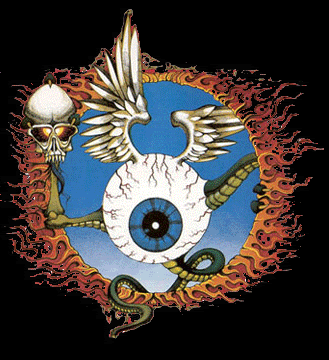




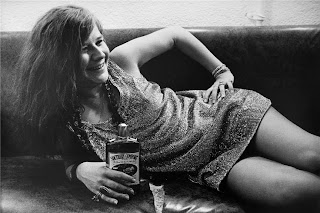
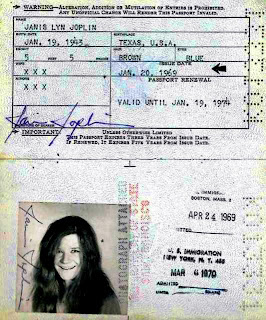
.jpg)





